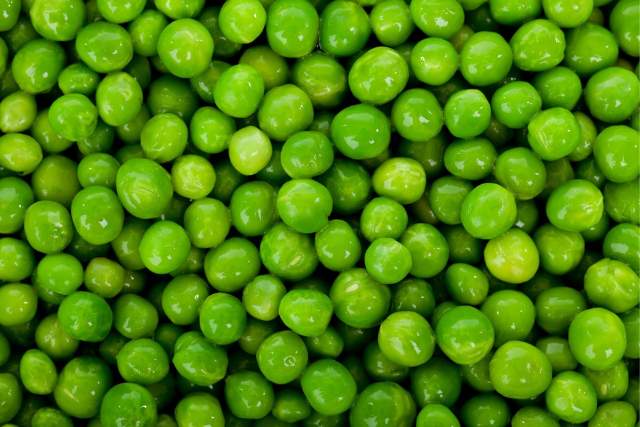Recent Posts
-

- Diabetes-Friendly Nutrition: Smart... 08.12.2024
-

- Nutrition for Chronic... 08.12.2024
-

- Anti-Inflammatory Diet: Food... 08.12.2024
-

- Low-Sodium and Heart-Healthy:... 08.12.2024
-

- Plant-Based Diets for... 08.12.2024
Plant-Based Proteins: Unlocking the Potential of Legumes

In recent years, there has been a growing awareness of the benefits of plant-based diets as a sustainable and health-conscious alternative to traditional ways of eating. Legumes are a nutritional powerhouse that stands out among the many different forms of plant-based proteins. They provide many advantages for both human health and the environment, making them an incredible source of protein. Legumes, including chickpeas, lentils, beans, and peas, have been a staple food in many civilizations for millennia. Because of their adaptability and nutritional profile, legumes are an excellent supplement to any diet.
Legumes are well-known for the large amount of protein they contain, making them an ideal alternative to proteins derived from animals for consumers who are vegetarian or vegan. On the other hand, their advantages go much beyond protein alone. Legumes have a high concentration of complex carbohydrates, dietary fibre, vitamins, and minerals. These minerals and vitamins include folate, iron, potassium, and magnesium. Due to their high nutritional density, they are an essential component of a well-balanced diet, which in turn contributes to the general health and well-being of the individual.
Health Benefits
It is possible that including beans in your diet will result in several positive health effects. As a result of their high fibre content, they are beneficial to digestive health since they encourage regular bowel movements and avoid constipation. In addition, the soluble fibre that is included in beans has the potential to assist in lowering cholesterol levels, hence decreasing the likelihood of cardiac disease. In addition, legumes have a low glycemic index, indicating that they may assist in regulating blood sugar levels. As a result, they are especially advantageous for those who already have diabetes or who are at risk of acquiring the illness when consumed regularly.
Moreover, legumes are a source of phytochemicals that possess antioxidant effects. These phytochemicals include flavonoids and polyphenols. These substances assist in the elimination of potentially harmful free radicals inside the body, aiding in the reduction of inflammation and the risk of developing chronic illnesses such as certain malignancies and cardiovascular ailments.
Sustainable Protein Source
Additionally, beans are sources of protein that are kind to the environment and the nutritional advantages they provide. In contrast to animal agriculture, which requires a significant amount of resources and helps to produce greenhouse gases, legumes have less impact on the environment. Because of their exceptional capacity to fix nitrogen in the soil, legumes may help reduce the amount of synthetic fertilisers required and improve the soil's overall health. Furthermore, compared to many forms of animal protein, they need less water and land use, making them a more environmentally friendly option for feeding a rising population worldwide.
Versatility in the Kitchen
The diversity that legumes bring to the table in cooking is one of their most significant advantages. It is possible to use legumes in a wide variety of foods, ranging from soups and stews to salads and spreads, to enhance the dish's flavour, texture, and nutritional content. For instance, chickpeas may be mashed into hummus, roasted for a crispy snack, or cooked in a fragrant curry. All of these combinations are possible. With their versatility, lentils may be used to make various dishes, including tasty dals, robust soups, and protein-packed salads.
A Few Suggestions to Consider When Including Legumes in Your Diet
A few suggestions for introducing legumes into your diet are provided below if you are interested in reaping the advantages of legumes:
Start gradually:
It is best to gradually include legumes in your diet if you are not used to eating them daily. This will give your digestive system time to react to the new foods.
Have fun experimenting with a variety of varieties:
It is possible to choose from a broad range of legumes, each of which has a flavour and texture that is distinctively its own. It is essential to try out a variety of beans, including split peas, kidney beans, and black beans, to determine which ones satisfy your preferences.
Incorporate with complementary proteins:
Even while legumes are a good source of protein on their own, combining them with other sources of protein that are complementary to them, such as whole grains, nuts, and seeds, may improve the nutritional content of legumes and help produce more well-rounded meals.
Take care to consider the procedures of preparation:
It is recommended that you use cooking techniques that maintain the nutrients of legumes, such as boiling, steaming, or pressure cooking, to get the most out of the nutritional advantages that legumes provide. To reduce the health advantages of these foods, you should avoid cooking them excessively or adding itemsheavy fat items.
In conclusion, beans are a source of sustainable protein that, in addition to being a nutritious powerhouse, should be given a prominent role in any diet. Include legumes in your diet for a variety of reasons, including but not limited to the following: whether you are a vegetarian who is devoted to the diet, a flexitarian who is aiming to minimise the amount of meat you consume or just someone who is hoping to enhance their general health. Regarding maximising the potential of plant-based proteins, legumes are a gift from nature because of their adaptability, affordability, and remarkable nutritional profile.





